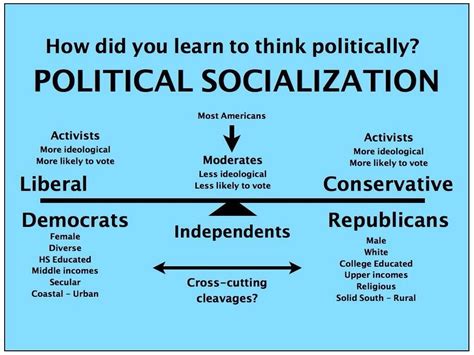Life style effects refer to the influence of a person’s lifestyle on their ability to participate in and engage with the political process. This influence can be positive or negative, and it can vary depending on a number of factors, such as a person’s income, education level, and access to resources.

Positive Life Style Effects
There are a number of positive life style effects that can encourage political participation. These include:
- Education: Education is one of the most important factors that can promote political participation. People who are more educated are more likely to be informed about political issues, and they are also more likely to have the skills and knowledge necessary to participate in the political process.
- Income: Income is another important factor that can affect political participation. People who have more income are more likely to have the time and resources necessary to participate in politics. They are also more likely to be able to afford to donate to political campaigns and support political causes.
- Access to resources: People who have access to resources, such as transportation and childcare, are more likely to be able to participate in politics. They are also more likely to be able to take time off from work to attend political events or volunteer for campaigns.
Negative Life Style Effects
There are also a number of negative life style effects that can discourage political participation. These include:
- Poverty: Poverty is a major barrier to political participation. People who are living in poverty are often too busy trying to make ends meet to participate in politics. They are also more likely to be distrustful of government and to feel that their voices do not matter.
- Discrimination: Discrimination is another barrier to political participation. People who experience discrimination are often less likely to trust government and to feel that they have a stake in the political process.
- Lack of time: People who work long hours or have other responsibilities may not have the time to participate in politics. They may also be too tired to attend political events or volunteer for campaigns.
Common Mistakes to Avoid
There are a number of common mistakes that people make when trying to understand life style effects on political participation. These include:
- Oversimplifying the issue: Life style effects on political participation are complex and vary depending on a number of factors. It is important to avoid oversimplifying the issue by assuming that all people who experience a particular life style effect will behave in the same way.
- Ignoring the role of individual agency: People have the ability to overcome the negative effects of their life style on political participation. It is important to recognize the role of individual agency and to avoid assuming that people who experience a particular life style effect are doomed to be politically inactive.
- Focusing on the negative: It is important to remember that there are also a number of positive life style effects that can encourage political participation. By focusing on the negative, we may overlook the opportunities that exist to increase political participation among all people.
Conclusion
Life style effects can have a significant impact on political participation. It is important to understand these effects and to work to overcome the barriers that they create. By doing so, we can help to increase political participation and make our democracy more responsive to the needs of all citizens.
Tables
Table 1: Life Style Effects on Political Participation
| Life Style Effect | Positive or Negative | Impact on Political Participation |
|---|---|---|
| Education | Positive | Encourages political participation |
| Income | Positive | Increases access to resources and time for political participation |
| Access to resources | Positive | Enables political participation |
| Poverty | Negative | Discourages political participation |
| Discrimination | Negative | Reduces trust in government and sense of stake in the political process |
| Lack of time | Negative | Reduces opportunities for political participation |
Table 2: Common Mistakes to Avoid
| Mistake | Description |
|---|---|
| Oversimplifying the issue | Assuming that all people who experience a particular life style effect will behave in the same way |
| Ignoring the role of individual agency | Failing to recognize that people have the ability to overcome the negative effects of their life style on political participation |
| Focusing on the negative | Overlooking the opportunities that exist to increase political participation among all people |
Table 3: Strategies to Increase Political Participation
| Strategy | Description |
|---|---|
| Increase access to education | Make education more affordable and accessible to all people |
| Increase incomes | Raise the minimum wage and provide tax breaks for low-income families |
| Increase access to resources | Provide transportation and childcare assistance to people who need it |
| Address poverty | Provide housing, food assistance, and other services to people who are living in poverty |
| Combat discrimination | Enforce anti-discrimination laws and create opportunities for people from all backgrounds to participate in politics |
| Create opportunities for political participation | Make it easier for people to register to vote and to participate in political campaigns |
Table 4: Benefits of Increased Political Participation
| Benefit | Description |
|---|---|
| More responsive government | Government is more responsive to the needs of all citizens when more people participate in the political process |
| Increased accountability | Elected officials are more accountable to their constituents when more people are involved in the political process |
| Stronger democracy | Democracy is stronger when more people are engaged in the political process |
